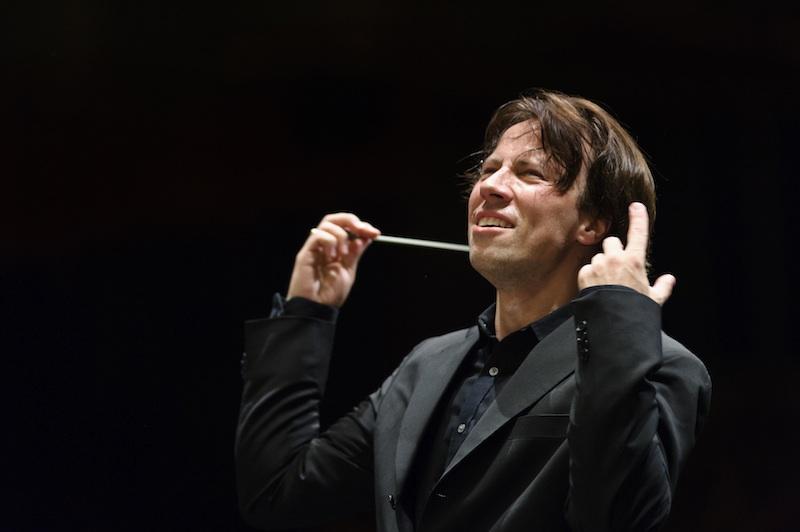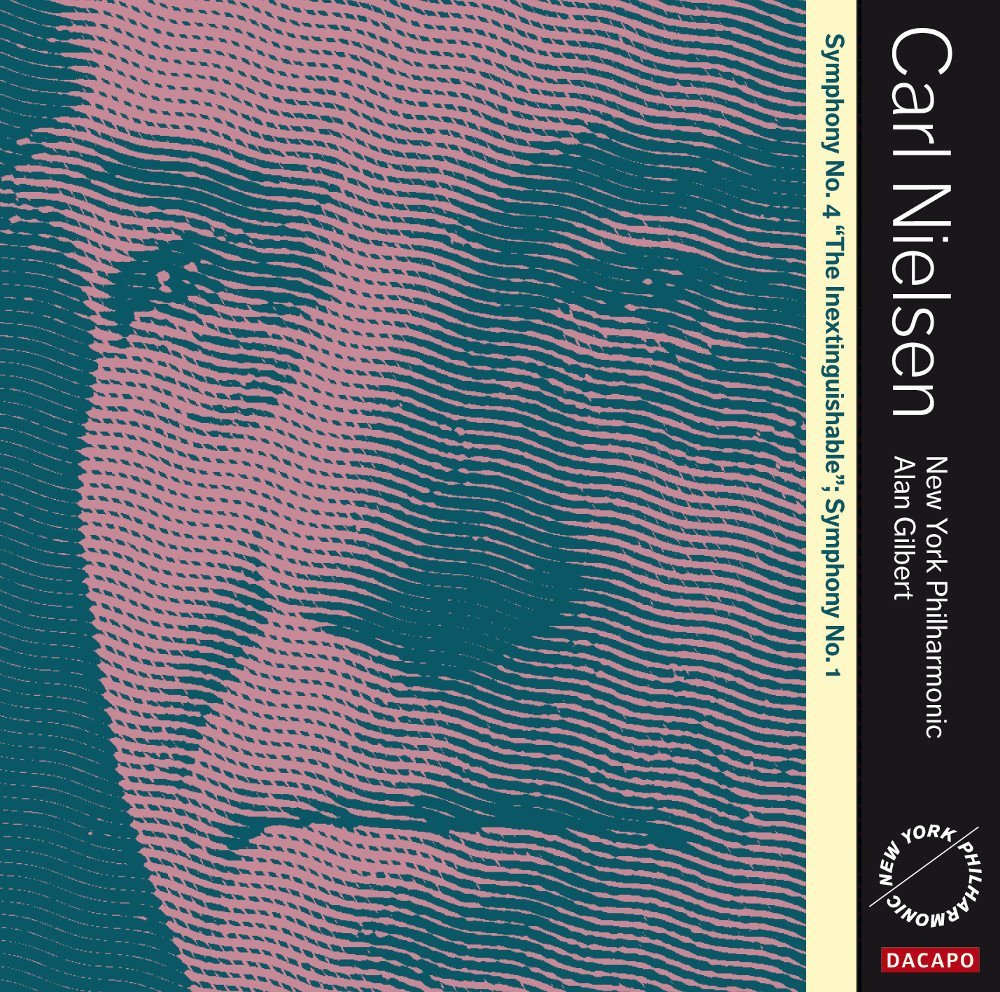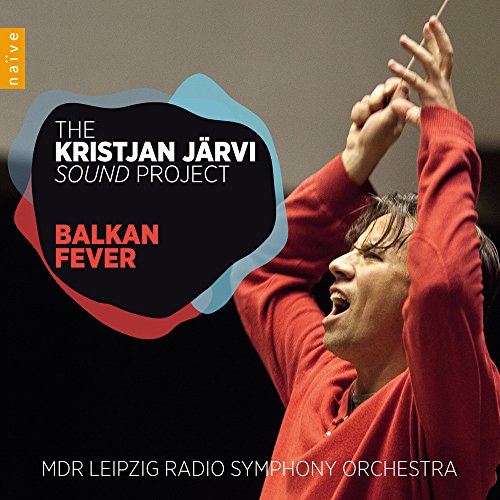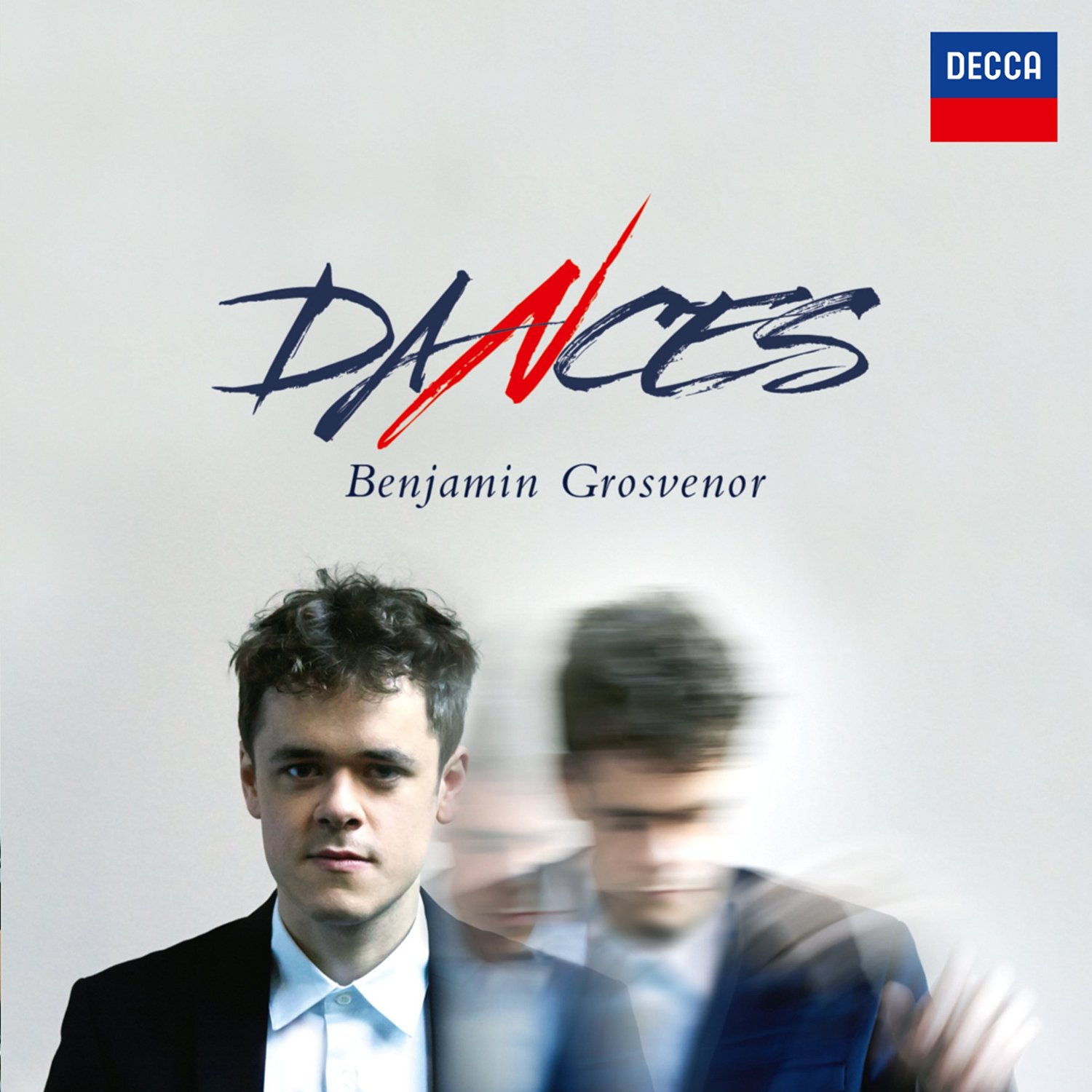Classical CDs Weekly: Nielsen, Kristjan Järvi, Benjamin Grosvenor | reviews, news & interviews
Classical CDs Weekly: Nielsen, Kristjan Järvi, Benjamin Grosvenor
Classical CDs Weekly: Nielsen, Kristjan Järvi, Benjamin Grosvenor
Feisty Danish symphonies, orchestral music from the Balkans and the latest disc from a young British pianist


Alan Gilbert tears into the opening of Nielsen 4 with some ferocity, sustaining the forward motion very nicely indeed. Until, well, we'll get to that later. This symphony needs to feel slightly unhinged, a boiling cauldron of sound. You suspect that this performance works so well because Gilbert hasn't micromanaged things, letting an on-form New York Philharmonic let rip. The brass scythe through the first movement with precision and abandon, and Gilbert's especially good at managing the tempo and metre changes. Dacapo's wonderful sound lets us unpick Nielsen's dense, contrapuntal textures with ease. The sweet-natured, incongruous Poco allegretto is beautifully played, almost an interloper in the wrong piece. It's suddenly, brutally interrupted by the third movement's string recitative. Gilbert's blazing climax, seven minutes in, has to be heard to be believed. And the Allegro's duelling timps? They're astonishing here, leading into a coda which slightly underwhelms owing to the unmarked slowing down in the final minutes. That big 3/2 chorale needs to push on, or it risks sounding pompous. You're inclined to forgive Gilbert, as what's gone before is so good.
But it's the delectable Symphony no 1 which I've returned to again and again, Nielsen tipping his hat to Brahms and Dvorak whilst creating something highly individual. So much of what we hear in the mature symphonies is already present. Flattened sevenths give the melodies a unique shape, and the woodwind writing is glorious. Ostensibly a symphony in G minor, it begins and ends in bright C major. Gilbert really nails the music's fiery volatility, and you envy anyone experiencing the piece for the first time. He can also relax, to pleasing effect. Two quiet passages in this performance stand out: the gorgeous horn and bassoon solo near the close of the Andante, and the reprise of the third movement Trio. Intoxicating, uplifting music.
George Enescu's Romanian Rhapsody no 1 receives a gorgeously ripe live performance here. The control is sensational. Kristjan Järvi looks happy but exhausted in the booklet photos and it's easy to hear why; making a full orchestra shimmy like this takes some doing. The gear changes are effortless. And what a daft, irresistible piece it is – Enescu's sequence of folk tunes cleverly sequenced and given virtuoso orchestration. Naive's close recording balance lets us hear everything. The piece's abrupt close is masterly, audibly catching the audience unawares. The Enescu is the only "conventional" opus on the disc, the other items skilful arrangements of Balkan popular music made by group-led Bulgarian composer and kaval player Theodosii Spassov.
The kaval's breathy tone dominates several numbers. Suitably percussive at the start of Kite, it's heard to lesser effect in the preceding number, Eleno. The instrument's feral wildness is reined in, Spassov floating incongrously over gloopy, saccharine strings. This is the album's one mis-step though; everything else is a blast, made more exciting by a valiant orchestra just managing to stay one step ahead. The closing Gipsy Dance is daft but electrifying, made more so by guitarists Vlatko Stefanovski and Miroslav Tadić. They also collaborate with Spassov on two extended improvisations based on traditional Balkan music. The second, Kaljdzisko Oro, is the livelier, the rhythmic complexities holding no terrors.
Benjamin Grosvenor's unfolding career stands out in terms of what he's not yet done. His discography isn't large, and he's not been coerced into recording boring performances of standard repertoire. You sense that he's been trusted to develop at his own pace. This well-planned recital disc, based on pieces chosen for his South Bank debut in 2012, is consistently brilliant. I've not heard him do Bach before; the Partita no 4's Ouverture unfolds with mesmerising clarity and confidence, followed by a luxuriant, melting Allemande. Faster movements sparkle, the final Gigue dispatched with a cheeky, though never cocky, wit. Chopin is represented by his large-scale Andante spianato et Grande Polonaise brilliante and the darker Polonaise in F sharp minor. Decca's rich sound makes the latter a brooding, visceral experience, so it's a relief to reach three early mazurkas composed by the young Scriabin. His Op. 38 Valse is more characteristic – sensual, fruity music, hinting at the voluptuous extravagance of this composer's later work.
Rarer are 8 Valses poéticos written in 1900 by Granados, their cleaner, sparer lines a welcome contrast to Scriabin's decadence. Grosvenor plays them deftly, simply, and with enormous affection. He's under greater pressure in Adolf Schulz-Evler's deeply silly set of Arabesques on Johann Strauss's By the Beautiful Blue Danube. The playing is dazzling, though the piece ultimately irritates. Schulz-Evler's over-elaborate decoration strips Strauss's melodies of any charm, and you're left feeling slightly nauseous. Two encores do hit the spot – Godowsky's lush reworking of Albéniz's Tango, and a terrifying, exhilarating Boogie-Woogie Etude composed by Morton Gould in 1943. Classy stuff.
Explore topics
Share this article
The future of Arts Journalism
You can stop theartsdesk.com closing!
We urgently need financing to survive. Our fundraising drive has thus far raised £49,000 but we need to reach £100,000 or we will be forced to close. Please contribute here: https://gofund.me/c3f6033d
And if you can forward this information to anyone who might assist, we’d be grateful.

Subscribe to theartsdesk.com
Thank you for continuing to read our work on theartsdesk.com. For unlimited access to every article in its entirety, including our archive of more than 15,000 pieces, we're asking for £5 per month or £40 per year. We feel it's a very good deal, and hope you do too.
To take a subscription now simply click here.
And if you're looking for that extra gift for a friend or family member, why not treat them to a theartsdesk.com gift subscription?
more Classical music
 Bizet in 150th anniversary year: rich and rare French offerings from Palazzetto Bru Zane
Specialists in French romantic music unveil a treasure trove both live and on disc
Bizet in 150th anniversary year: rich and rare French offerings from Palazzetto Bru Zane
Specialists in French romantic music unveil a treasure trove both live and on disc
 Scottish Chamber Orchestra, Ibragimova, Queen’s Hall, Edinburgh review - rarities, novelties and drumrolls
A pity the SCO didn't pick a better showcase for a shining guest artist
Scottish Chamber Orchestra, Ibragimova, Queen’s Hall, Edinburgh review - rarities, novelties and drumrolls
A pity the SCO didn't pick a better showcase for a shining guest artist
 Kilsby, Parkes, Sinfonia of London, Wilson, Barbican review - string things zing and sing in expert hands
British masterpieces for strings plus other-worldly tenor and horn - and a muscular rarity
Kilsby, Parkes, Sinfonia of London, Wilson, Barbican review - string things zing and sing in expert hands
British masterpieces for strings plus other-worldly tenor and horn - and a muscular rarity
 From Historical to Hip-Hop, Classically Black Music Festival, Kings Place review - a cluster of impressive stars for the future
From quasi-Mozartian elegance to the gritty humour of a kitchen inspection
From Historical to Hip-Hop, Classically Black Music Festival, Kings Place review - a cluster of impressive stars for the future
From quasi-Mozartian elegance to the gritty humour of a kitchen inspection
 Shibe, LSO, Adès, Barbican review - gaudy and glorious new music alongside serene Sibelius
Adès’s passion makes persuasive case for the music he loves, both new and old
Shibe, LSO, Adès, Barbican review - gaudy and glorious new music alongside serene Sibelius
Adès’s passion makes persuasive case for the music he loves, both new and old
 Anja Mittermüller, Richard Fu, Wigmore Hall review - a glorious hall debut
The Austrian mezzo shines - at the age of 22
Anja Mittermüller, Richard Fu, Wigmore Hall review - a glorious hall debut
The Austrian mezzo shines - at the age of 22
 First Person: clarinettist Oliver Pashley on the new horizons of The Hermes Experiment's latest album
Compositions by members of this unusual quartet feature for the first time
First Person: clarinettist Oliver Pashley on the new horizons of The Hermes Experiment's latest album
Compositions by members of this unusual quartet feature for the first time
 Gesualdo Passione, Les Arts Florissants, Amala Dior Company, Barbican review - inspired collaboration excavates the music's humanity
At times it was like watching an anarchic religious procession
Gesualdo Passione, Les Arts Florissants, Amala Dior Company, Barbican review - inspired collaboration excavates the music's humanity
At times it was like watching an anarchic religious procession
 Classical CDs: Camels, concrete and cabaret
An influential American composer's 90th birthday box, plus British piano concertos and a father-and-son duo
Classical CDs: Camels, concrete and cabaret
An influential American composer's 90th birthday box, plus British piano concertos and a father-and-son duo
 Cockerham, Manchester Camerata, Sheen, Martin Harris Centre, Manchester review - re-enacting the dawn of modernism
Two UK premieres added to three miniatures from a seminal event of January 1914
Cockerham, Manchester Camerata, Sheen, Martin Harris Centre, Manchester review - re-enacting the dawn of modernism
Two UK premieres added to three miniatures from a seminal event of January 1914
 Kempf, Brno Philharmonic, Davies, Bridgewater Hall, Manchester review - European tradition meets American jazz
Bouncing Czechs enjoy their Gershwin and Brubeck alongside Janáček and Dvořák
Kempf, Brno Philharmonic, Davies, Bridgewater Hall, Manchester review - European tradition meets American jazz
Bouncing Czechs enjoy their Gershwin and Brubeck alongside Janáček and Dvořák
 Solomon, OAE, Butt, QEH review - daft Biblical whitewashing with great choruses
Even a top soprano and mezzo can’t make this Handel paean wholly convincing
Solomon, OAE, Butt, QEH review - daft Biblical whitewashing with great choruses
Even a top soprano and mezzo can’t make this Handel paean wholly convincing

Add comment